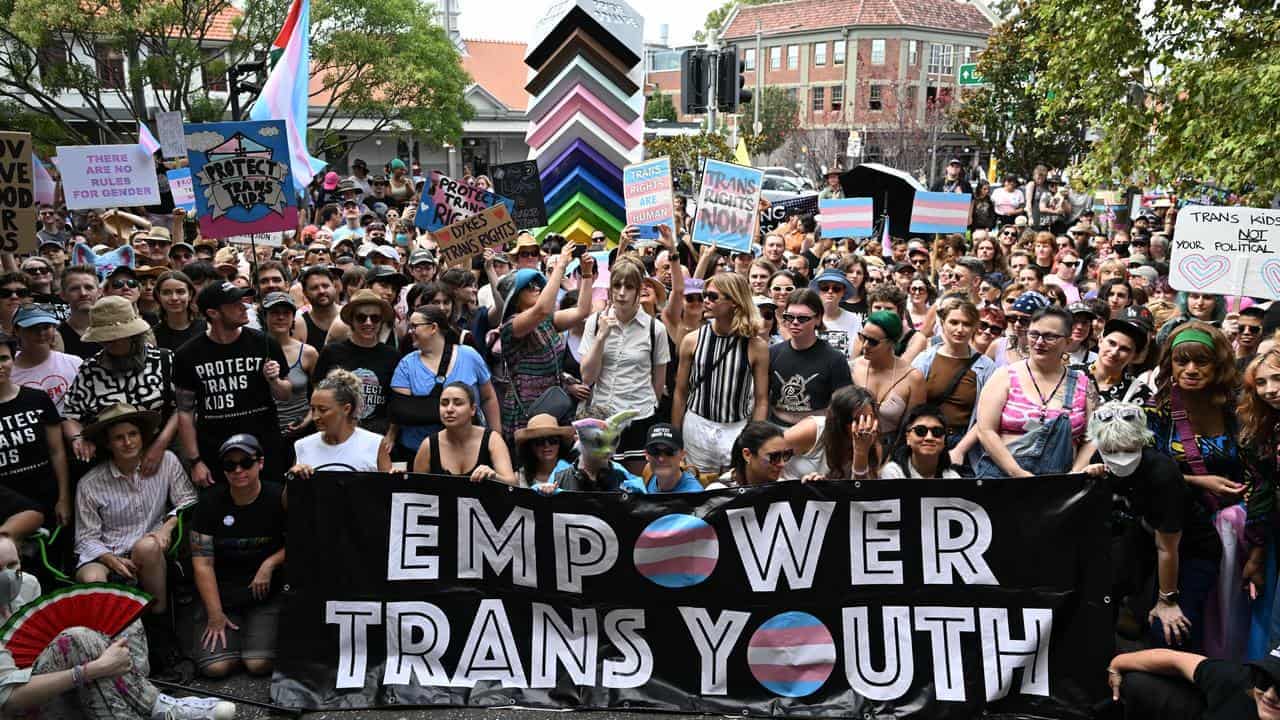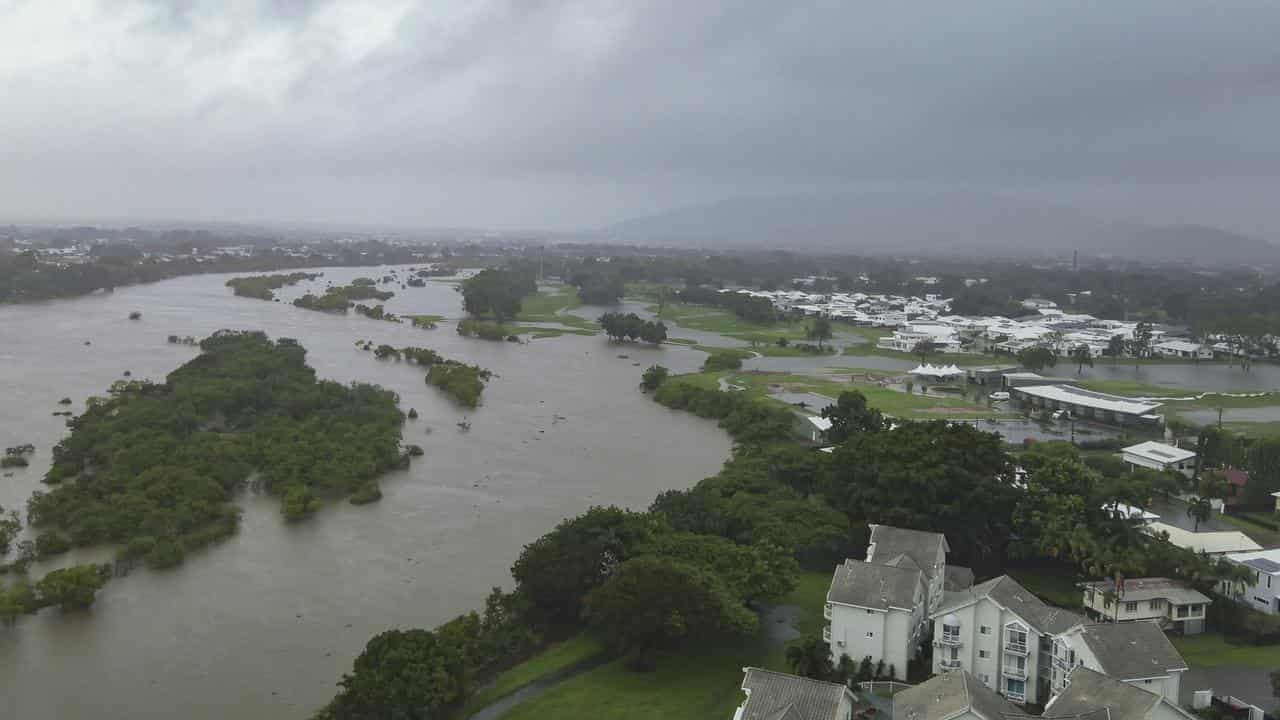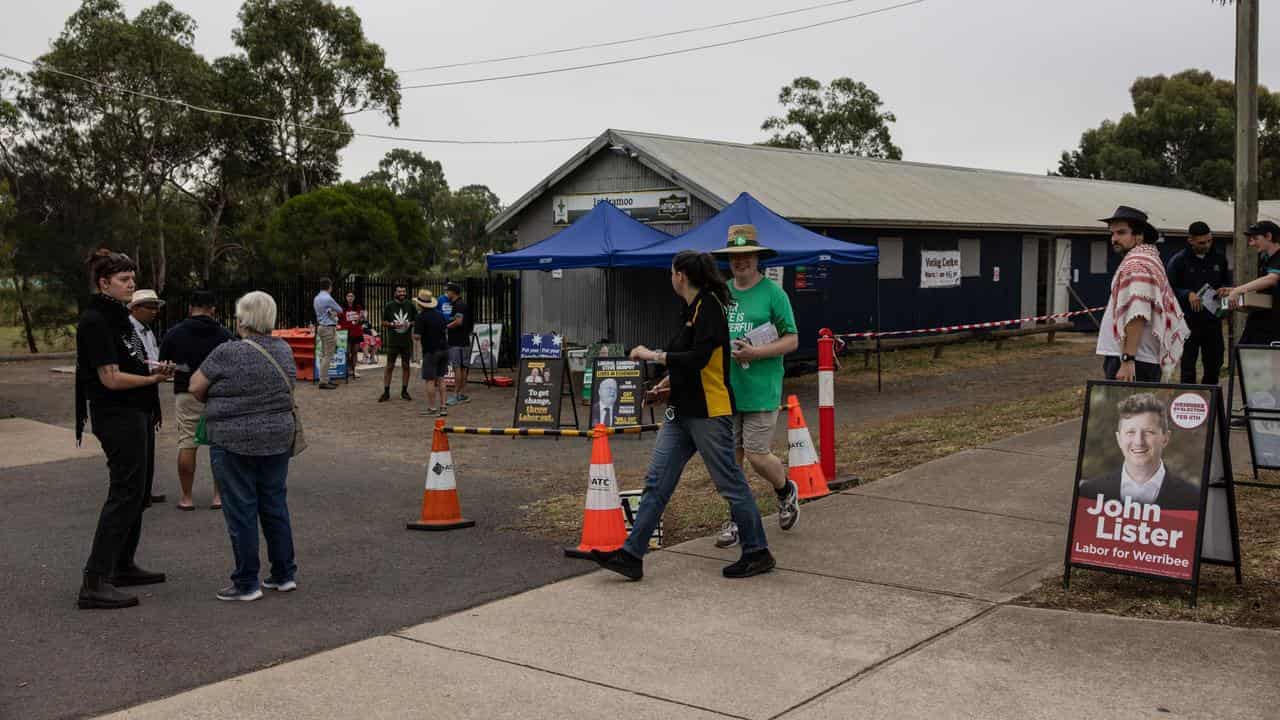It's being claimed the NSW government has banned people from using the protest slogan "free Palestine from the river to the sea".
This is false. The state government has not passed any legislation to prevent people from saying the phrase.
The claim was originally made in a TikTok video which has been shared on Facebook, X (formerly Twitter) and Instagram - see here, here, here, here, here, here.
In the original clip, which has more than 230,000 views, the speaker lists examples of governments cracking down on criticism of Israel.
"The French government is trying to pass a bill that makes criticising Israel and criticising Zionism illegal. Similar things are trying to be passed in America," he says.
"And the New South Wales government in Australia passed a bill saying that you can't say 'free Palestine from the river to the sea'."
Versions of the phrase "from the river to the sea, Palestine will be free" have been displayed at recent pro-Palestine protests in Australia (see here, here, here, here, here).
The phrase references the land between the Jordan River, which borders eastern Israel, and the Mediterranean Sea.
Elliott Colla, a professor of Arabic and Islamic Studies at Georgetown University, has written that the phrase's usage emerged after "the 1947 UN partition plan that sought to divide Palestine into two states".
Iterations of the phrase have had different meanings, but Palestinian historian Maha Nassar, writing in The Conversation, said the "majority of people using the phrase see it as a principled vision of freedom and coexistence".
However, the phrase has been adopted by Hamas. In a speech to mark the 25th anniversary of the founding of the group, its former leader Khaled Mashaal said: "Palestine is ours from the river to the sea and from the south to the north... There will be no concession on any inch of the land."
This has led to claims the phrase is anti-Semitic by some groups.
A list of NSW parliament's current bills shows there is no legislation banning people from repeating the phrase.
A spokesperson for NSW parliament confirmed to AAP FactCheck no bill had been passed.
However, the Legislative Council did pass a private members' motion (page 6) from Liberal MP Chris Rath condemning its use at a Sydney protest on October 15.
The motion also condemned anti-Semitism and all forms of hate speech, reaffirmed the parliament's commitment to a two-state solution and called for the upholding of international law standards to protect human lives.
The TikTok user also claims the French government is proposing a bill which would ban criticism of Israel or Zionism.
A bill was tabled in the French Senate on October 10, which aims to criminalise "provoking hatred and violence against the State of Israel".
But this was introduced by Senator Stephane Le Rudulier from conservative party The Republicans, not the government of Emmanuel Macron.
While claims in the video are inaccurate, there are examples of governments, police or authorities in other nations preventing people from using "from the river to the sea".
German media (here, here, here, here) has reported the public prosecutor in Berlin said use of the slogan was now classified as a criminal offence.
German Interior Minister Nancy Faeser has announced a ban on items associated with Hamas, including "the slogan 'from the river to the sea' (in German or other languages)".
Police in the Austrian capital Vienna banned a pro-Palestinian protest on October 11, because "from the river to the sea" was mentioned on invitations.
Politicians in the UK and US have also been sanctioned for using the phrase - see here and here.
The Verdict
The claim the NSW government has passed a bill stating people cannot say "free Palestine from the river to the sea" is false.
State parliament has not passed any legislation, but the Legislative Council did support a private member's motion condemning its use at a pro-Palestine rally in Sydney.
While the claim is inaccurate, there are examples of governments and authorities in other parts of the world banning or censoring use of the phrase.
False - The claim is inaccurate.
AAP FactCheck is an accredited member of the International Fact-Checking Network. To keep up with our latest fact checks, follow us on Facebook, Twitter and Instagram.











